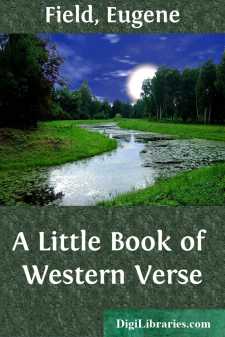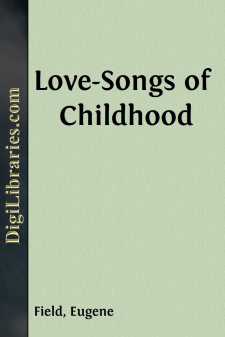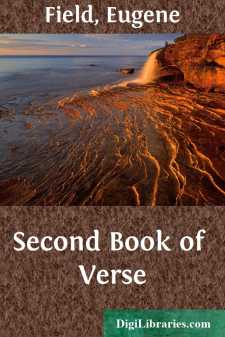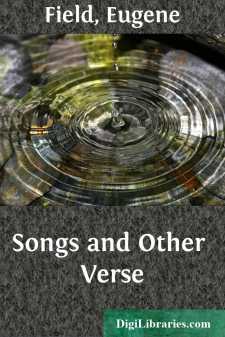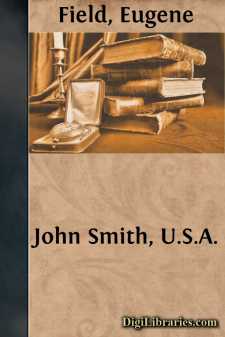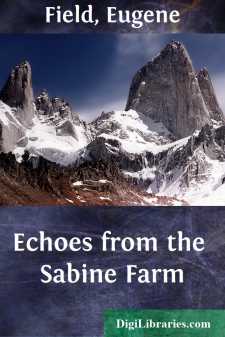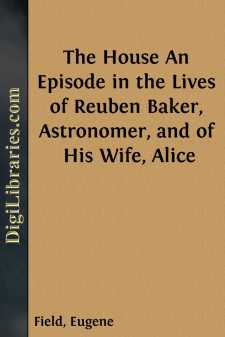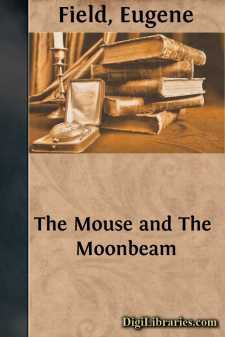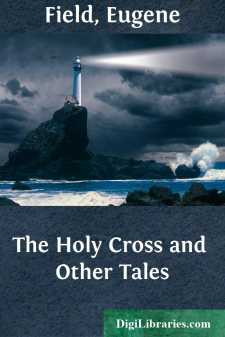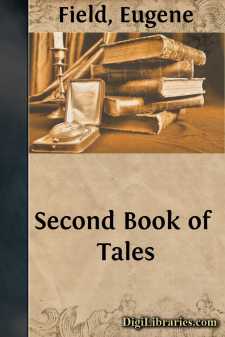Categories
- Antiques & Collectibles 13
- Architecture 36
- Art 48
- Bibles 22
- Biography & Autobiography 815
- Body, Mind & Spirit 144
- Business & Economics 28
- Children's Books 18
- Children's Fiction 14
- Computers 4
- Cooking 94
- Crafts & Hobbies 4
- Drama 346
- Education 58
- Family & Relationships 59
- Fiction 11835
- Games 19
- Gardening 17
- Health & Fitness 34
- History 1378
- House & Home 1
- Humor 147
- Juvenile Fiction 1873
- Juvenile Nonfiction 202
- Language Arts & Disciplines 89
- Law 16
- Literary Collections 686
- Literary Criticism 179
- Mathematics 13
- Medical 41
- Music 40
- Nature 180
- Non-Classifiable 1768
- Performing Arts 7
- Periodicals 1453
- Philosophy 65
- Photography 2
- Poetry 896
- Political Science 203
- Psychology 44
- Reference 154
- Religion 515
- Science 126
- Self-Help 85
- Social Science 83
- Sports & Recreation 34
- Study Aids 3
- Technology & Engineering 60
- Transportation 23
- Travel 463
- True Crime 29
Eugene Field
Eugene Field (1850-1895) was an American writer renowned for his children's poetry and humorous essays. Often referred to as the "Poet of Childhood," Field's most famous works include "Wynken, Blynken, and Nod" and "The Gingham Dog and the Calico Cat." His playful, imaginative verses and engaging storytelling have left a lasting impact on American literature, particularly in the genre of children's poetry.
Author's Books:
Sort by:
by:
Eugene Field
TO MARY FIELD FRENCH A dying mother gave to you Her child a many years ago;How in your gracious love he grew, You know, dear, patient heart, you know. The mother's child you fostered then Salutes you now and bids you takeThese little children of his pen And love them for the author's sake. To you I dedicate this book, And, as you read it line by line,Upon its faults as kindly...
more...
by:
Eugene Field
THE ROCK-A-BY LADY The Rock-a-By Lady from Hushaby streetComes stealing; comes creeping;The poppies they hang from her head to her feet,And each hath a dream that is tiny and fleet—She bringeth her poppies to you, my sweet,When she findeth you sleeping! There is one little dream of a beautiful drum—"Rub-a-dub!" it goeth;There is one little dream of a big sugar-plum,And lo! thick and fast...
more...
by:
Eugene Field
FATHER'S WAY.MY father was no pessimist; he loved the things of earth,—Its cheerfulness and sunshine, its music and its mirth.He never sighed or moped around whenever things went wrong,—I warrant me he'd mocked at fate with some defiant song;But, being he warn't much on tune, when times looked sort o' blue,He'd whistle softly to himself this only tune he...
more...
by:
Eugene Field
INTRODUCTION "It is about impossible for a man to get rid of his Puritan grandfathers, and nobody who has ever had one has ever escaped his Puritan grandmother;" so said Eugene Field to me one sweet April day, when we talked together of the things of the spirit. It is one of his own confessions that he was fond of clergymen. Most preachers are supposed to be helplessly tied up with such a set...
more...
by:
Eugene Field
JOHN SMITH. To-day I strayed in Charing Cross as wretched as could be With thinking of my home and friends across the tumbling sea; There was no water in my eyes, but my spirits were depressed And my heart lay like a sodden, soggy doughnut in my breast. This way and that streamed multitudes, that gayly passed me by— Not one in all the crowd knew me and not a one knew I! "Oh,...
more...
by:
Eugene Field
INTRODUCTION One Sunday evening in the winter of 1890 Eugene Field and the writer were walking in Lake View, Chicago, on their way to visit the library of a common friend, when the subject of publishing a book for Field came up for discussion. The Little Book of Western Verse and The Little Book of Profitable Tales had been privately printed the year before at Chicago, and Field had been frequently...
more...
by:
Eugene Field
WE BUY A PLACE It was either Plato the Athenian, or Confucius the Chinese, or Andromachus the Cretan—or some other philosopher whose name I disremember—that remarked once upon a time, and the time was many centuries ago, that no woman was happy until she got herself a home. It really makes no difference who first uttered this truth, the truth itself is and always has been recognized as one...
more...
by:
Eugene Field
hilst you were sleeping, little Dear-my-soul, strange things happened; but that I saw and heard them, I should never have believed them. The clock stood, of course, in the corner, a moonbeam floated idly on the floor, and a little mauve mouse came from the hole in the chimney corner and frisked and scampered in the light of the moonbeam upon the floor. The little mauve mouse was particuÃlarly...
more...
by:
Eugene Field
ALAS, POOR YORICK! In paying a tribute to the mingled mirth and tenderness of Eugene Field—the poet of whose going the West may say, "He took our daylight with him"—one of his fellow journalists has written that he was a jester, but not of the kind that Shakespeare drew in Yorick. He was not only,—so the writer implied,—the maker of jibes and fantastic devices, but the bard of...
more...
by:
Eugene Field
HUMIN NATUR' ON THE HAN'BUL 'ND ST. JO Durin' war times the gorillas hed torn up most uv the cypress ties an' used 'em for kindlin' an' stove wood, an' the result wuz that when the war wuz over there wuz n't anythink left uv the Han'bul 'nd St. Jo but the rollin' stock 'nd the two streaks uv rails from one end uv the road to the...
more...


